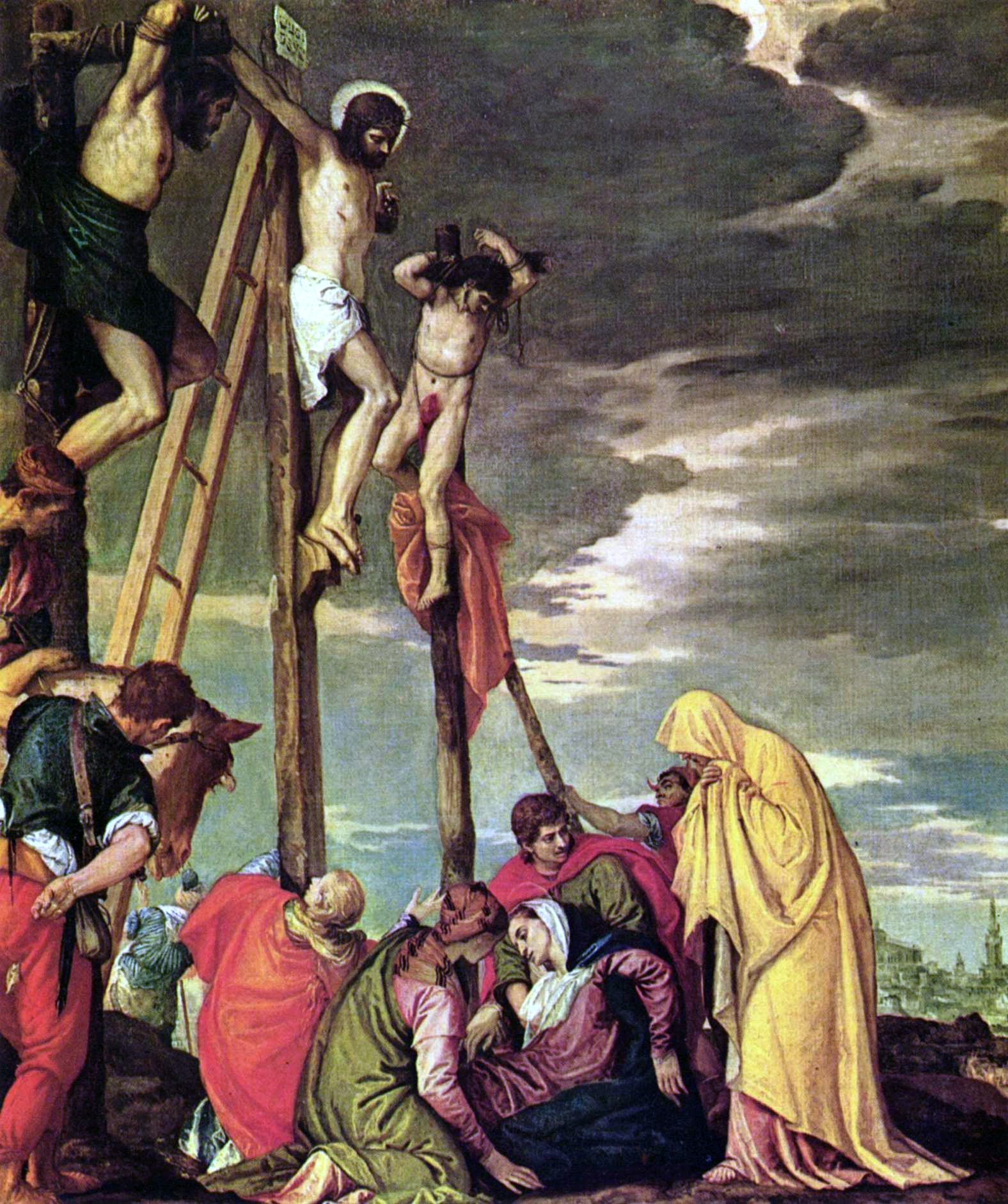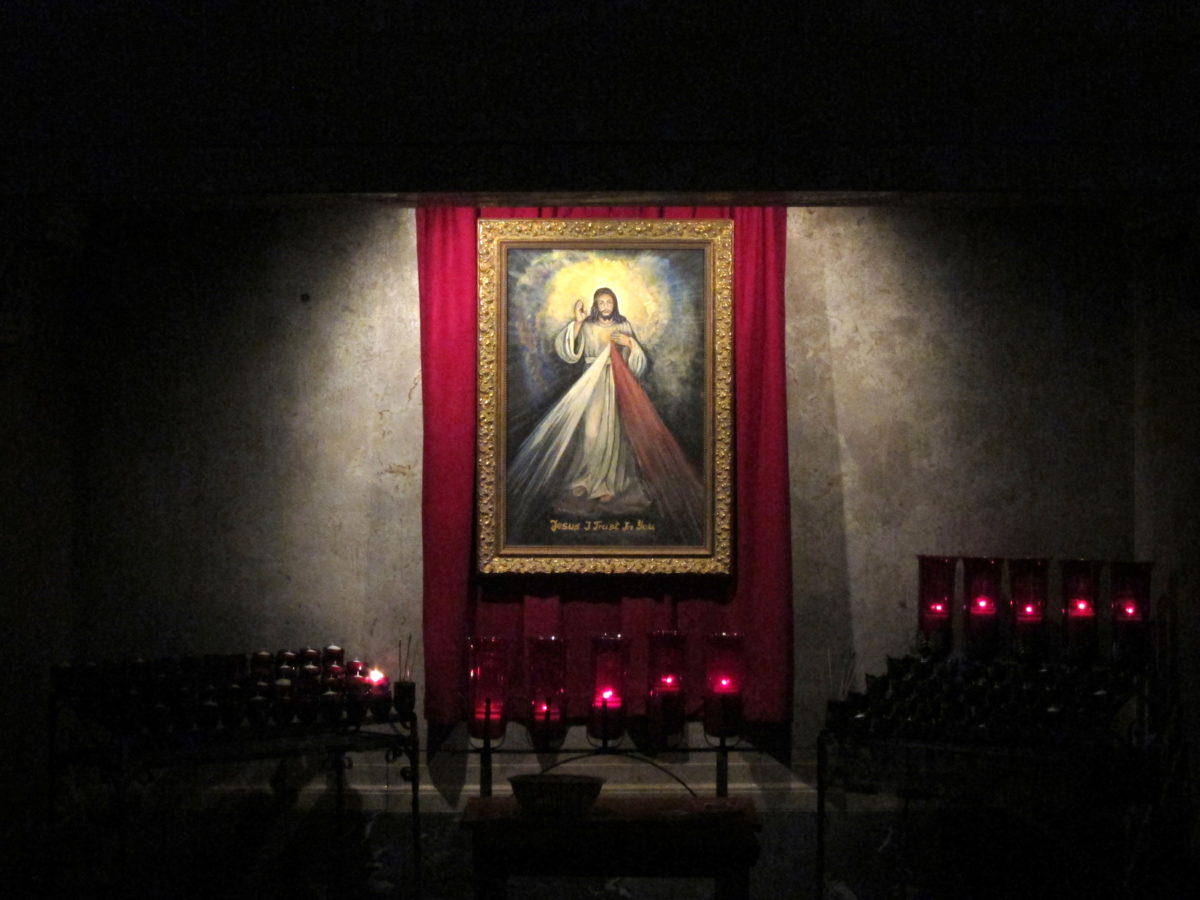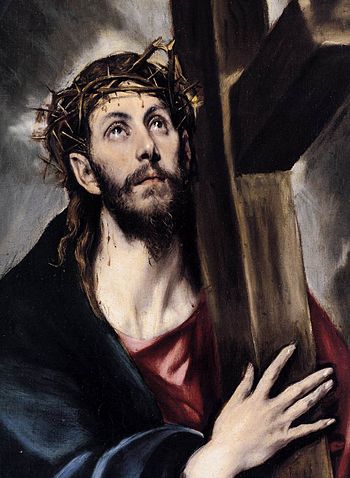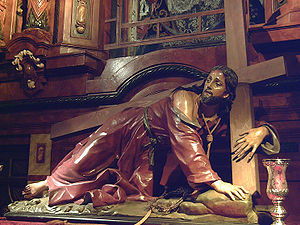This Sunday we celebrate The Solemnity of Our Lord Jesus Christ, King of the Universe. The Gospel is from St. Luke:
The rulers sneered at Jesus and said,
“He saved others, let him save himself
if he is the chosen one, the Christ of God.”
Even the soldiers jeered at him.
As they approached to offer him wine they called out,
“If you are King of the Jews, save yourself.”
Above him there was an inscription that read,
“This is the King of the Jews.”Now one of the criminals hanging there reviled Jesus, saying,
“Are you not the Christ?
Save yourself and us.”
The other, however, rebuking him, said in reply,
“Have you no fear of God,
for you are subject to the same condemnation?
And indeed, we have been condemned justly,
for the sentence we received corresponds to our crimes,
but this man has done nothing criminal.”
Then he said,
“Jesus, remember me when you come into your kingdom.”
He replied to him,
“Amen, I say to you,
today you will be with me in Paradise.”
The rosary connection is fairly obvious as St. Luke writes about Jesus’ crucifixion which is the Fifth Sorrowful Mystery. Here we see Jesus’ divine power amidst His human weakness. Battered and broken, Jesus is minutes away from shedding His humanity by dying on the cross. But almost like a scale, what Jesus loses through his physical body is counter-balanced by His authority and power in the spiritual realm. He shows us He is king, not by any earthly standard, but by redeeming us all through suffering and death.

What is amazing is that Jesus’ kingly authority is so transparent to one criminal and opaque to the other. One challenges Jesus to save them while the other humbly asks Jesus to simply remember him. And doesn’t the difference in the two criminals interaction with Jesus remind us of how we often treat Jesus? One day we humbly ask Him for guidance and protection and other days we are challenging Him to prove Himself by answering our every wish and desire. Sometimes we treat Jesus as King of Heaven and humbly submit to His will. And other times we come close to threatening Him if He does not give us what we want.
When you reflect on this Gospel and pray the Fifth Sorrowful Mystery of the rosary, ask yourself, how much of your life is spent treating Jesus as your king and how much as your servant? Do you have the strength to look past your immediate circumstances and see that Jesus is willing to offer you something so much better — eternal joy in His Heavenly Kingdom? Instead of telling Jesus what you want Him to do, do you have the faith to just ask Him to remember you knowing that He will take care of you?
The Church is celebrating the year of mercy. Consider this. Both criminals crucified next to Jesus were sinners. But Jesus showed mercy telling one that he would be with Jesus in paradise that day. Jesus’ power and mercy are so great, there is no amount or type of sin that it cannot overpower. All you have to do is humbly ask the Lord to remember you.
















